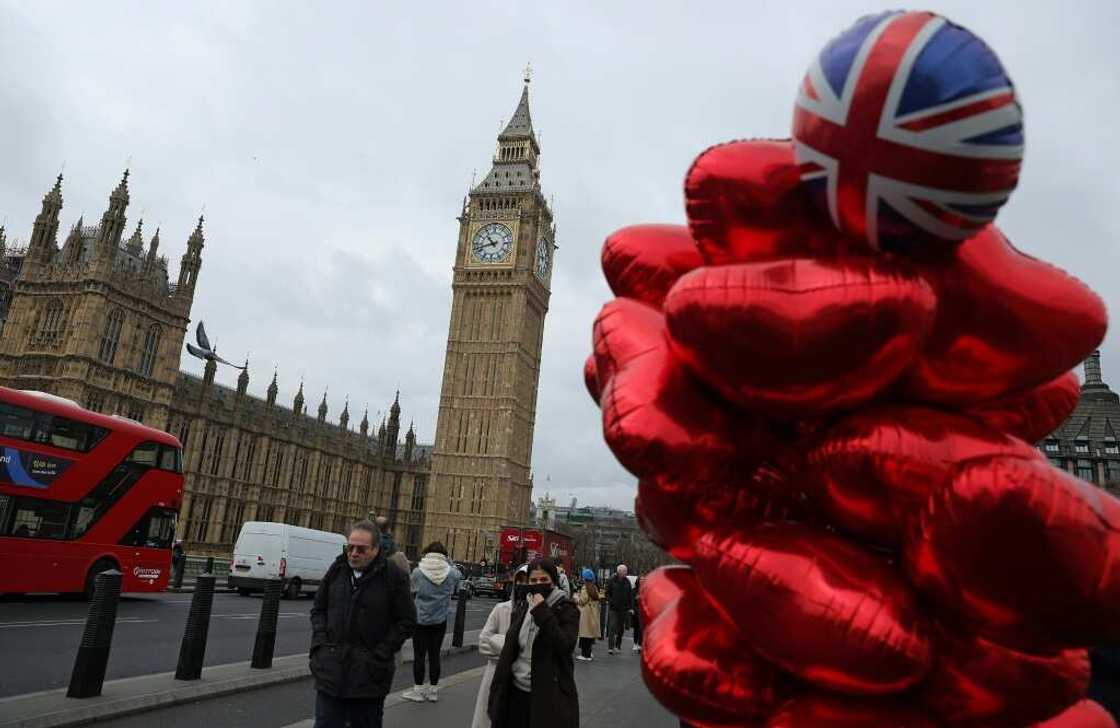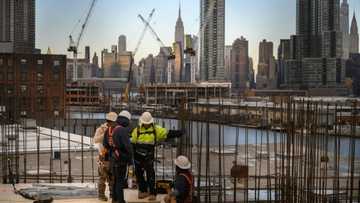UK economic rebound eases recession fear before budget

Source: AFP
The UK economy has returned to growth, data showed Friday, easing fears of an inflation-induced recession as the government readies next week's budget against the backdrop of a cost-of-living crisis.
Gross domestic product grew 0.3 percent in January, the Office for National Statistics (ONS) said, boosted partly by entertainment and transport activity.
Output dropped 0.5 percent in December on widespread strikes as workers protested over pay failing to keep pace with UK inflation above 10 percent.
Britain last year swerved recession -- defined as two straight quarters of contraction -- and many experts believe it will manage to do the same in 2023.
"Things are better than people had feared, sentiment is improving, confidence is returning and that is I think partly a function of the plans that we've put in place," Prime Minister Rishi Sunak told reporters.
'Risks remain'
Deutsche Bank economist Sanjay Raja said the UK economy is no longer expected to fall into a technical recession this year.
PAY ATTENTION: Join Legit.ng Telegram channel! Never miss important updates!
"However, the margin of error is slim, and risks remain skewed to weaker growth over the coming quarters, given lingering uncertainty and pessimism around the economic outlook."
Britain's Conservative government, facing anger over soaring energy bills as executive pay in the sector rockets, unveils a budget on Wednesday.
"Today's news does provide evidence of a surprisingly resilient UK economy, which will add a positive backdrop to the budget next week," noted economist Josie Anderson at research group CEBR.
Finance minister Jeremy Hunt has already been boosted by a stronger-than-expected public finances surplus in January.
'Long way to go'
"In the face of severe global challenges, the UK economy has proved more resilient than many expected, but there is a long way to go," Hunt said in response to Friday's data.
"Next week, I will set out the next stage of our plan to... grow the economy -- so we can improve living standards for everyone."
However, millions of Britons will likely have to pay more for gas and electricity from next month as the government plans to remove some of its costly financial help that had lowered energy bills.
The ONS cautioned that economic growth flatlined in January from the same month a year earlier, hit by high living costs.
Yet month-on-month activity rebounded as the services sector offset a poor performance by construction and manufacturing.
Activity was stimulated by schools reopening after Christmas holidays -- and the return of England's Premier League football competition following the World Cup.
Another boost came as postal services recovered from industrial action the previous month.
Energy payouts
Global inflation last year reached the highest levels in decades as the invasion of Ukraine by key oil and gas producer Russia sent energy prices soaring.
British energy giant BP on Friday revealed it more than doubled the remuneration of chief executive Bernard Looney to £10 million ($12 million) last year.
The news came one day after rival Shell said its recently-retired CEO Ben van Beurden earned a similar amount in 2022.
The UK economy registered zero growth in the final three months of last year, after shrinking 0.3 percent in the third quarter.
Output was additionally hit by the Bank of England's interest rate hikes that sought to dampen consumer prices.
Source: AFP





